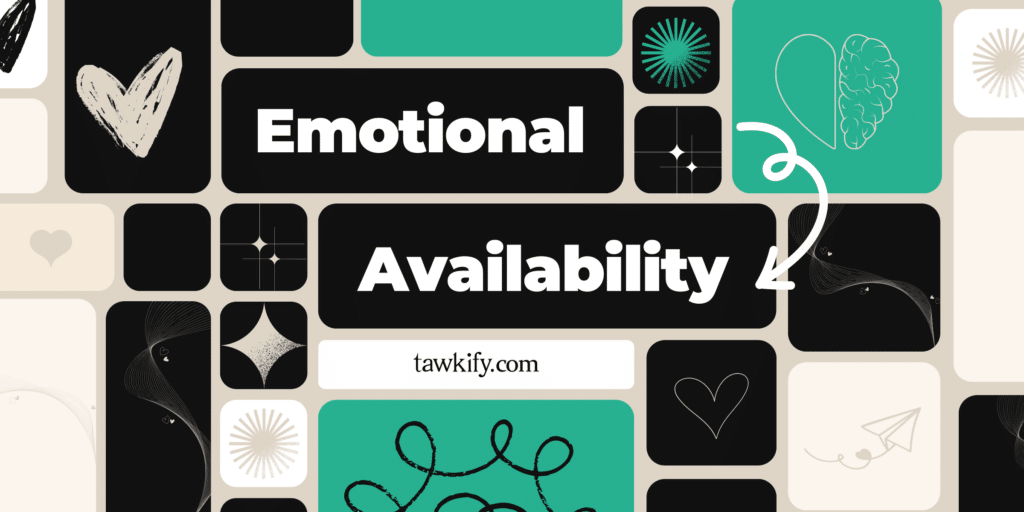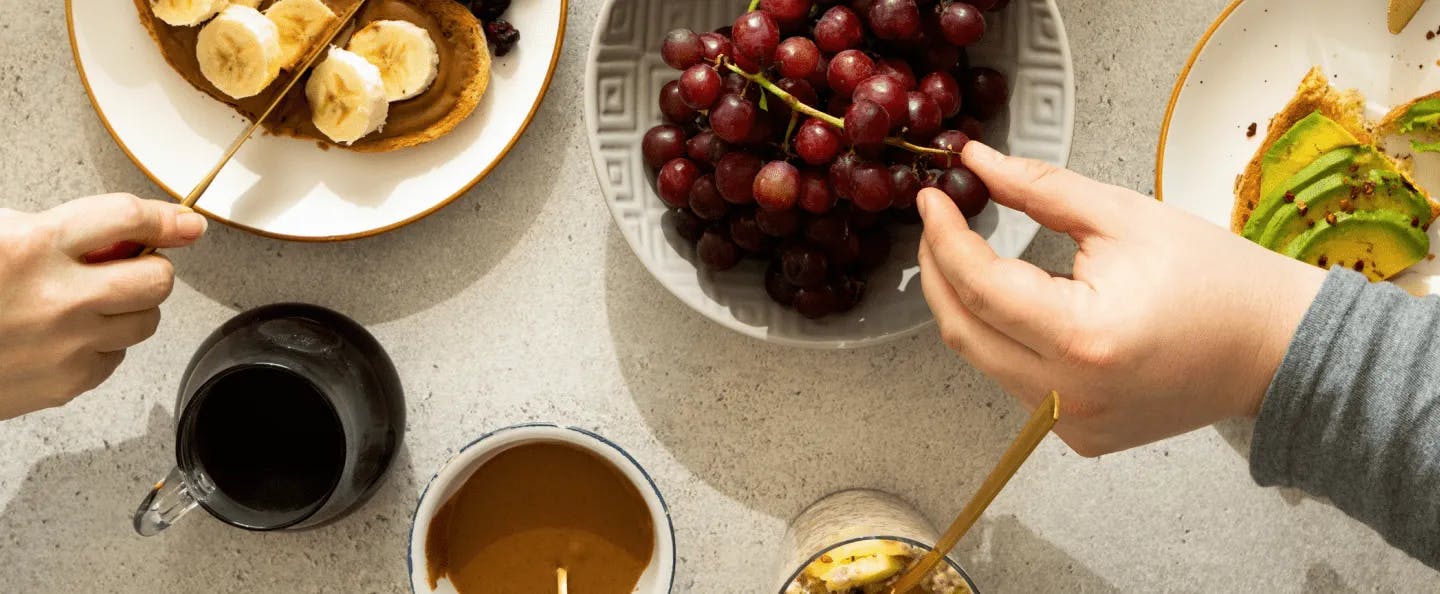Emotionally Available Defined & Signs – A Complete Guide

When it comes to the dating world, you’ve probably heard of the term “emotionally unavailable.” This word is often used to describe someone who struggles to process, interpret, manage, and express their emotions. This inability to handle and respond to their feelings can complicate their relationships, making it challenging for them to form deep, meaningful connections with others. For example, they might stray from commitment, send mixed signals, and avoid serious conversations.
Now, there’s also something called “emotionally available,” which refers to someone who is the opposite of someone who is emotionally unavailable. Someone with emotional availability processes and expresses emotions in open and healthy ways. Because of this, they can more easily form emotional connections and commit to relationships, both of which are qualities of a good romantic partner.
But how do you know if you or the person you’re dating is emotionally available? That’s where we can help. Below, we’ll unpack everything you need to know about emotional availability and how it relates to the dating scene. We’ll explore some common signs of it and address ways you (and your partner) can work on building it in your relationship.
Signs of an Emotionally Available Person

Want to know how you and your partner fare on the emotional availability spectrum? Check out some signs below to see if they ring true to you or your relationship. And if none of them do, be sure to check out our advice for improving and expanding your emotional capacity.
1. They are Not Afraid to Commit
Those who are emotionally unavailable often avoid commitment at all costs because it requires a certain level of vulnerability they’re not comfortable exploring. After all, entering into a committed relationship means letting another person in, allowing them to see their true colors, and sharing their thoughts and feelings.
In contrast, those more emotionally available have fewer qualms about commitment. They’re open and willing to explore a relationship, see where it goes, and even settle down because they’re not so concerned about feeling exposed. They also realize the joy, love, and sense of fulfillment associated with being in a committed relationship; to them, that feels comforting rather than dangerous.
2. They are Open to Communication
The ability and willingness to have open and honest conversations are qualities of a good romantic partner, often linked to those with strong emotional capacities. This allows them to express their feelings and listen to the feelings of others, leading to productive and meaningful discussions. They stray from surface-level conversations and instead prefer to have thoughtful conversations that help build their emotional connections with others.
3. They are Willing to Discuss Their Feelings
If someone is emotionally available, they don’t shy away from expressing and discussing their feelings. Whether they’re angry, jealous, happy, worried, or sad, they communicate this to those around them to receive the comfort and support they need. Instead of bottling up their emotions and keeping them from the world, they express them in a healthy manner. This is an especially important quality in a relationship, as it allows the person to be honest with their partner about their feelings.
4. They Emphasize
Empathy is not just a quality of a good romantic partner but also a good friend, colleague, family member, and neighbor. It refers to one’s ability to interpret, process, and sympathize with the way someone else is feeling. Basically, if you can empathize, you can put yourself in someone else’s shoes and get a feel for what they’re experiencing in their lives. Doing so can help you better understand your loved ones and offer the support they need because you imagine how you might feel in their situation.
5. They are Affectionate
Emotionally available people are often affectionate and use forms of affection to express their love. They like to hug, kiss, cuddle, and handhold because it makes them feel connected to their loved ones. They may also wrap their arm around your shoulder, pat you on the back, or place their hand on your knee to comfort, support, and express their appreciation for you.
However, you’re not likely to see an emotionally unavailable person engage in these displays of affection. In fact, they’re much more likely to clam up and steer clear of this kind of intimacy or even feel trapped or uncomfortable by it. Therefore, those who struggle with emotional availability don’t tend to give or receive affection.
6. They Don’t Run From Conflict
When someone is emotionally unavailable, they usually run for the hills as soon as there is any sign of conflict in their relationship. After all, conflict often involves feelings and discussions, both of which they shy away from.
On the flip side, when someone is emotionally available, they’re more likely to stick around and face the conflict head-on. They understand that conflict and disagreements are a natural and healthy aspect of relationships and that the sooner they address them, the sooner they can overcome them. Even if it involves having an uncomfortable conversation and bearing their souls, emotionally available people know that level of vulnerability helps lead to resolution and a stronger connection.
7. They are Authentic
Just as those who are emotionally available often wear their hearts on their sleeves, they’re also unapologetic when it comes to expressing who they are. They don’t feel like they need to hide, and instead, they celebrate themselves, even if that means exposing their good, bad, and ugly parts. They’re authentic, vulnerable, and true to themselves because they’re not worried about putting up walls and keeping everyone out. They understand that those who are positive influences in their lives will love and accept them no matter what.
8. They Have Strong Friendships and/or Family Connections
Someone with a healthy relationship with how they manage and express their feelings usually has many solid friendships and family connections. This is because their ability to connect, empathize, and have vulnerable conversations lets them form strong bonds with their loved ones. In turn, this likely means they are open and eager to form similar connections in their romantic relationships, too.
How to Become More Emotionally Available

Don’t worry if none of these signs of emotional availability sound familiar in your relationship right now because there are ways to improve how you and your partner process, manage, and express your feelings. As long as you’re willing to put in the work, you can both learn to overcome your emotional unavailability and share the benefits of a stronger, deeper connection.
Explore the Root Causes
Often, emotional unavailability stems from something in your past that’s triggering insecurities and causing you to put up walls and protect yourself. For example, you might have been exposed to an abusive relationship in your home as a child or experienced relationship trauma in a previous partnership. When you explore the root cause, you can begin to unpack those experiences and examine ways to process those feelings.
Journal
Journaling offers a great way to process and explore your emotions in the privacy of your own space. When you write in a notebook, you can be as honest, vulnerable, and raw as possible without worrying about what others may think because you’re in a safe space. This makes journaling a productive exercise when exploring the root cause of your emotional constraints and learning to identify your emotions. Allow your thoughts and feelings to flow through your pen and onto the open page—don’t hold back, edit your words, or judge yourself along the way.
Practice Speaking about Your Feelings
If you struggle with emotional availability, then talking about your feelings is probably the last thing you want to do. However, doing so is also one of the best things you can do for yourself. Start by speaking out loud to yourself, and then gradually encourage yourself to talk with someone you trust, like your partner, best friend, or brother.
When you’re feeling something, try to pinpoint and name that emotion and describe how it’s making you feel to the person you trust. For example, maybe you’re feeling anxious, which is causing you to feel nervous, disengaged, and antsy. Now, how can you manage those feelings? Maybe you can take five deep breaths, go for a walk, journal, or try to address what’s causing that anxiety in the first place. The more you learn to identify and share your emotions out loud, the more you’ll learn to process them in a healthy manner.
Consider Meeting with a Professional
If you or your partner are still having trouble opening up, you may want to consider meeting with a professional. Many therapists specialize in emotional unavailability and can provide you with the proper tools to overcome your challenges.
Be Patient
Discovering how to tap into your emotional side isn’t something that will occur overnight. However, if you dedicate the time and effort to your self-work, you will begin to notice little differences, that show you are becoming more emotionally available and giving way to healthier, happier, and more fulfilling relationships.

